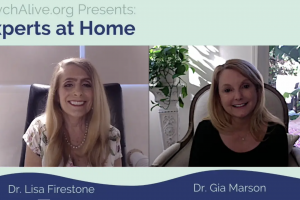Helping Someone with an Eating Disorder? …Follow the Research
 Our prime purpose in this life is to help others. And if you can’t help them, at least don’t hurt them. — Dalai Lama
Our prime purpose in this life is to help others. And if you can’t help them, at least don’t hurt them. — Dalai Lama
It can extremely scary, overwhelming and frustrating to provide assistance to a friend or family member who is trying to recover from an eating disorder. These illnesses are stubborn, life threatening and characterized by ambivalence. If you are wondering what to do to help, recent research sheds some light.
The January 2018 International Journal of Eating Disorders published relevant, preliminary/exploratory research based on findings for 72 adults with eating disorders. (1) The results confirm past findings. If you are in a caretaking role for an adult loved one with an eating disorder, a positive collaborative approach works best. Even though it can be tempting to try tough love or take a domineering, directive stance, please resist — that is associated with an increase in depression and loneliness.
For adults, try a collaborative, supportive stance instead by:
- building positive experiences
- reducing feelings of threat
- cultivating feelings of safety, closeness and trust
- using warmth
- being nurturing
- offering gentle guidance
This approach by carers is associated with better outcomes, higher autonomous motivation, greater patient satisfaction, improved mood and more hope and optimism.
For adolescents and children with eating disorders, the style of assistance for carers is based in the type of eating disorder and treatment he or she is receiving. In Family Based Therapy [FBT], the treatment of choice for anorexia nervosa, parents are given the responsibility to feed their child using the sort of motivation that works in their unique family. (2) Parents are empowered to be in charge, to separate the illness from their child, to be direct about the food necessary for a return to health and to stay compassionate throughout the process. Siblings are placed in a position of support. In other types of treatments for children and adolescents, parents are given a more supportive role. If you are the parent of an adolescent or child with an eating disorder, discuss your role with the treatment team.
Eating disorders take incredible persistence and strength to overcome. If you are a caregiver or supporter of someone with one of these illnesses, stay empowered to help by using research as your guide. Whether you are a partner, friend or family member, you can be an emotional safety net and an important spoke on the wheel of recovery.
[1] Geller J, Iyar M, Srikameswaran S, et al. The relation between patient characteristics and their carers’ use of a directive versus collaborative support stance. Int J Eat Disord. 2018;51:71–76. https://doi.org/10.1002/eat.22791
[2] Rienecke, R. Family Based Treatment of Eating Disorders in Adolescents. Adolescent Health, Medicine and Therapeutics. 2017; 8: 69-79. 10.2147/AHMT.S115775








